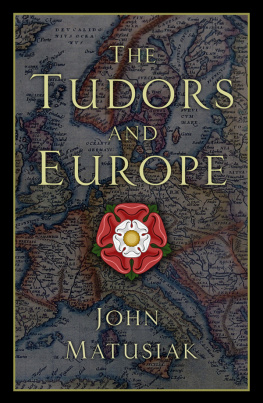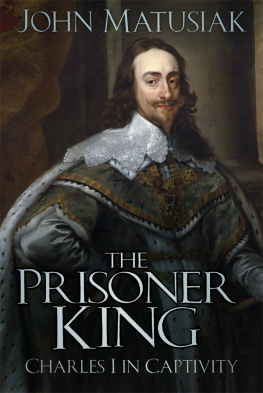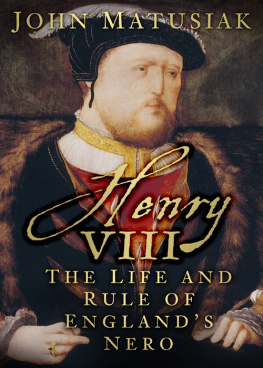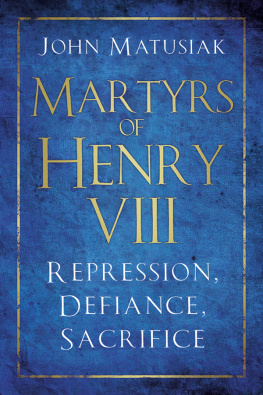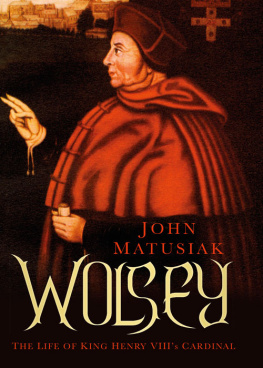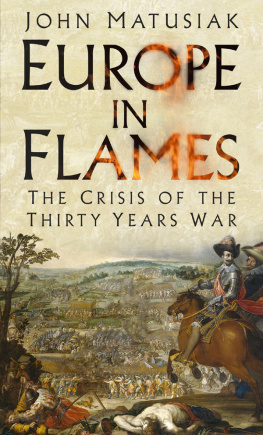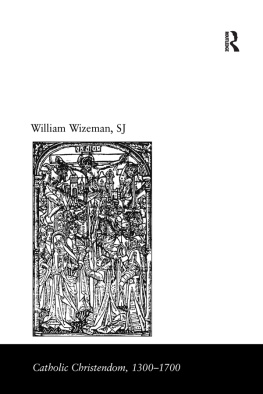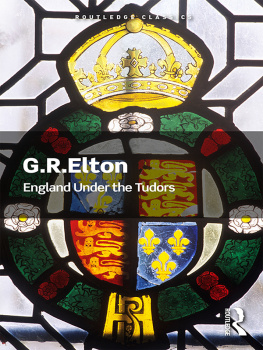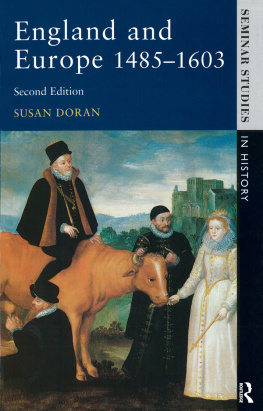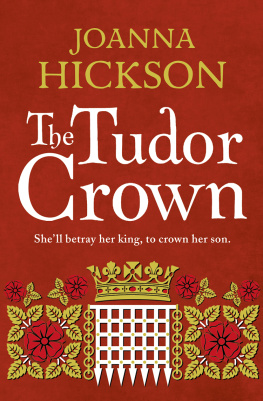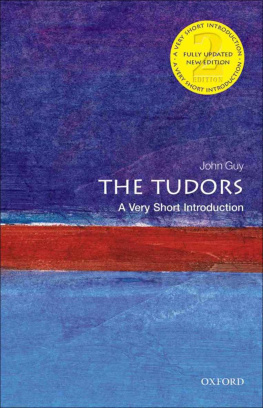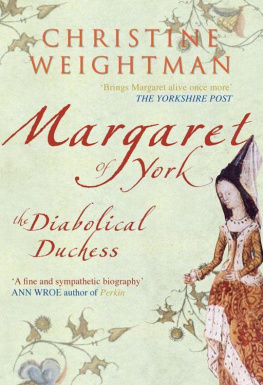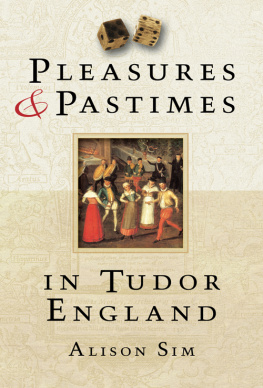Contents
Landmarks


First published 2020
The History Press
97 St Georges Place, Cheltenham,
Gloucestershire, GL50 3QB
www.thehistorypress.co.uk
John Matusiak, 2020
The right of John Matusiak to be identified as the Author of this work has been asserted in accordance with the Copyright, Designs and Patents Act 1988.
All rights reserved. No part of this book may be reprinted or reproduced or utilised in any form or by any electronic, mechanical or other means, now known or hereafter invented, including photocopying and recording, or in any information storage or retrieval system, without the permission in writing from the Publishers.
British Library Cataloguing in Publication Data.
A catalogue record for this book is available from the British Library.
ISBN 978 0 7509 9633 4
Typesetting and origination by The History Press
Printed and bound in Great Britain by TJ International Ltd.
eBook converted by Geethik Technologies

CONTENTS
I
CONTOURS AND CONNECTIONS
1
PEOPLES, PERCEPTIONS, PREJUDICE: TUDOR ENGLAND AND THE DISCOVERY OF EUROPE
Why should Europe be so called, or who was the first author of this name, no man has yet found out.
From the introduction by Abraham Ortelius to his atlas of 1570, Theatrum Orbis Terrarum
In an impassioned oration of 1599, the French scholar and political philosopher Louis Le Roy bewailed the condition of our common mother Europe, which, as though in answer to Mohammedan prayers, now found herself soaked in her own blood. Some three decades or so earlier, the religious reformer John Calvin had also spoken of Europae concussio the shattering of Europe as he reflected upon the divisions that he, in no small measure, had actually helped to propagate. Yet when Englands first Tudor ruler readied for battle on Bosworth Field in the high summer of 1485 with the intention of ending once and for all the meandering thirty-year contest that we now call the Wars of the Roses, the vast majority of his 8,000-strong force, including those very continental mercenaries whom he had enlisted to his cause, neither recognised nor remotely comprehended any such term as Europe. Nor, indeed, would matters alter appreciably for the majority of Englishmen over many decades to come. For when Falstaff staked his claim in Act IV of Henry IV, , to being simply the most active fellow in Europe an I had but a belly of indifferency Shakespeares intentions remained purely comedic, as he sought to lay bare the underlying ignorance of the braggart knight who, like most of his contemporaries, equated Europe with little more than what later generations might have considered Timbuktu.
As early as 1471, in fact, the astronomer Johannes Mller had seen fit to declare Nuremberg the middle point of Europe, while in 1505 Jakob Wimpheling became another to employ the expression in his eulogy for Strasbourgs splendid cathedral:
I would say that there is nothing more magnificent on the face of the earth than this edifice. Who can admire this tower sufficiently? Who can adequately praise it? With its stone tracery, its sculptured columns, its carved statues which describe so many things, it exceeds all buildings in Europe in beauty.
But if a negligible minority of mainly French and German writers were slowly sleepwalking their way towards a broader sense of identity beyond their national boundaries, the process proved markedly more tentative on the English side of the Channel and for good reason. For although the fighting was sporadic, the armies small and the material losses inconsiderable, the tortuous struggle between the two rival branches of the Plantagenet line during the second half of the fifteenth century had nevertheless been more than sufficiently disruptive to ensure that Henry VIIs new kingdom remained an inward-looking and comparatively insignificant backwater on the Continents damp and misty fringe. The Crown, after all, had become little more than a political football when Henry VI lost his throne to Edward IV at Towton in 1461, only to retrieve it in 1470 with the help of Edwards former henchman, Warwick the Kingmaker. Nor had things improved eight years later when the restored king once more made way for his resurgent rival. And in the meantime Englands entire strategic relation to Europe had altered accordingly in the wake of the events of 1453 when she was forced to forsake the last of her French lands, excepting Calais.
For it was only at this point, at the end of the Hundred Years War, that England, without realising it, became once again an island of the sort that it had been before 1066 that is, an autonomous political unit, territorially and psychologically distinct from Europe. Until this turning point, despite the Channel, the North Sea and the Straits of Dover, the kingdom had been intimately linked with France in particular, to the extent indeed that the long conflict between the two realms had actually taken place at what amounted to a more or less provincial level. In other words, England or more specifically its elites perceived the AngloFrench domain as a single entire unit that became, in consequence, both battlefield and prize until the two sides gradually disentangled themselves from the huge field of operations that had sapped their resources for so long. Even then, however, the notion of Englands physical linkage to Europe through France was not dead, as Henry VIII subsequently revived the dreams of his Lancastrian forebears, and sallied forth once more with bold ambitions to recapture the French Crown notwithstanding the warning delivered to the House of Commons by Thomas Cromwell in 1523 that a war of conquest would cost just as much as the whole of the circulating money in the country. Such a policy, he suggested, was likely to force England to adopt a leather currency, which would become especially problematic if the king were taken prisoner and ransom became necessary, since the French would probably refuse to return the English king on payment of leather, as they refused even to sell their wine except on payment of silver. In the event, no such expedient proved necessary, as the second Tudors ambitions foundered on realitys reef even more decisively than Henry Vs had ultimately done before him, and Calais finally fell to the French Crown eleven years after his death. Its return was insincerely promised at the Treaty of Cateau-Cambrsis in 1559, and the last Tudor ruler of England would briefly gain possession of Le Havre before its recapture in 1562. But more than a century earlier, the die had already been effectively cast. Thereafter, the Channel, the Straits of Dover and the North Sea were not so much a gateway to the perceived natural inheritance of Englands ruling class as a heaving watery bulwark protecting the island from alien influences and hostile foes.
In 1477, the Burgundian ruler of the Netherlands, Englands ancient ally, finally yielded possession of the Somme towns, Picardy, and the ancestral Duchy of Burgundy to France; and fifteen years later another old ally, the Duchy of Brittany, was, likewise, annexed to the French Crown. Together these events stripped away the wide belt of possessions and friendly or satellite territories that had formerly served as a land buffer against invasion, and left the entire southern coast of the Channel from Brest to Boulogne directly in French hands all of which was certain to bring far-reaching changes not only in Englands domestic economy and internal politics, but, no less importantly, in her broader perception of the world beyond her waters. For with Edward IVs eventual death in 1483, and the subsequent succession of his brother, Richard III, the dynastic merry-go-round had begun yet another giddy circuit, which ended only when Henry Tudor, great-grandson of a fugitive Welsh brewer wanted for murder, at last made his way from French protection to Market Bosworth in Englands midland heart to stake his own flimsy claim to primacy. Outnumbered by two to one, he would ultimately triumph in a particularly foul and inglorious fray fought on blood-soaked fen and moorland, only to inherit a kingdom that had arguably grown more insular than at any previous point in its history.

